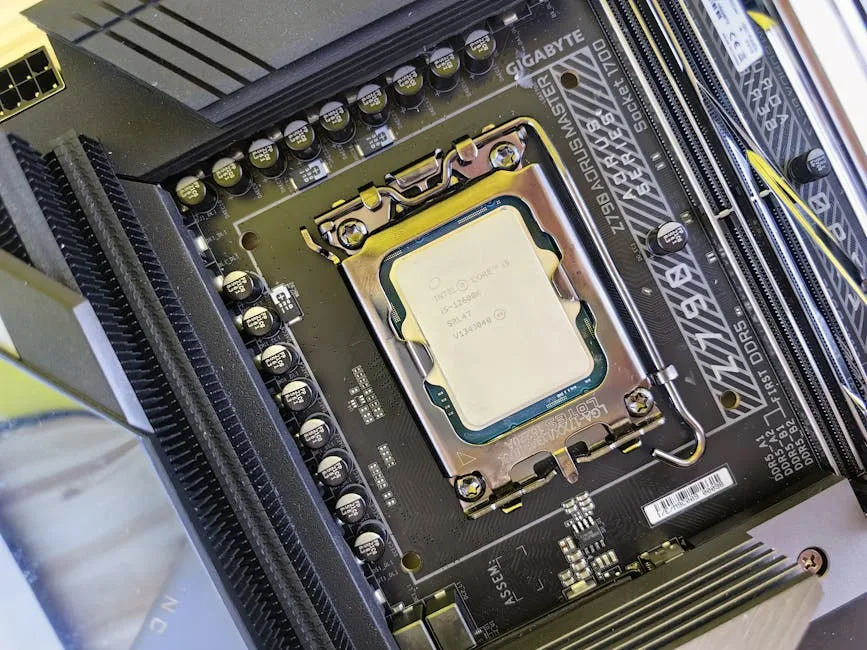
Security researchers have identified critical vulnerabilities in Gigabyte motherboards that allow attackers to bypass Secure Boot and deploy persistent UEFI malware. The flaws affect over 240 models, including popular Z690, B550, and X570 series, enabling attackers to execute code in System Management Mode (SMM) – a privileged CPU environment isolated from the operating system1.
Executive Summary for Security Leaders
The vulnerabilities (CVE-2025-7026 to CVE-2025-7029) enable attackers to:
- Bypass Secure Boot protections
- Maintain persistence across OS reinstalls
- Execute code in SMM (Ring -2)
- Write to protected SMRAM memory regions
Gigabyte has released firmware updates, but many end-of-life devices remain unpatched. The CVSS scores range from 8.2 to 8.8, reflecting the high risk of firmware-level compromise2.
Technical Analysis of UEFI Vulnerabilities
The vulnerabilities stem from improper validation in System Management Interrupt (SMI) handlers, which are privileged firmware components that handle low-level system events. Four specific CVEs have been identified:
| CVE | Vulnerability Type | Affected Component |
|---|---|---|
| CVE-2025-7029 | SMM privilege escalation | OverClockSmiHandler |
| CVE-2025-7028 | Arbitrary SMRAM writes | SmiFlash |
| CVE-2025-7027 | SMM privilege escalation | NVRAM manipulation |
| CVE-2025-7026 | Arbitrary SMRAM writes | CommandRcx0 |
These vulnerabilities allow attackers to corrupt SMRAM or inject malicious code that persists across operating system reinstalls. The flaws are particularly dangerous because they operate below the OS level, making detection difficult3.
Mitigation and Detection Strategies
Organizations using affected Gigabyte motherboards should implement the following measures:
- Update firmware immediately via Gigabyte’s security portal
- Disable “APP Center Download & Install” in BIOS settings
- Block known malicious URLs used by Gigabyte’s update service
- Use Binarly’s Risk Hunt scanner for detection
- Monitor for unexpected SMM activity
Security teams should pay particular attention to firmware-level anomalies, as traditional endpoint detection solutions may not catch SMM-based attacks4.
Historical Context and Related Threats
This isn’t the first time Gigabyte has faced firmware security issues. In 2023, researchers discovered that Gigabyte firmware embedded a Windows executable (GigabyteUpdateService.exe) that insecurely downloaded payloads5. The current vulnerabilities follow a pattern of firmware supply chain risks that have affected multiple vendors over the years.
The discovery comes amid growing concerns about UEFI malware, particularly after the emergence of the BlackLotus bootkit in 2023, which became the first malware capable of bypassing Secure Boot on Windows 11 systems1.
Conclusion
These Gigabyte UEFI vulnerabilities represent a significant threat to system integrity, particularly in enterprise environments where firmware security is often overlooked. The ability to maintain persistence at the firmware level makes these flaws particularly dangerous for high-security environments.
Security teams should prioritize firmware updates and consider implementing additional monitoring for SMM activity. As firmware attacks become more sophisticated, organizations must expand their security monitoring beyond the operating system level to include firmware integrity checks.
References
- “Gigabyte motherboards vulnerable to UEFI malware bypassing Secure Boot,” BleepingComputer, July 14, 2025.
- “Gigabyte UEFI Firmware Vulnerability,” GBHackers, July 14, 2025.
- “BIOS Vulnerability Targets Gigabyte Motherboards,” Bitdefender, July 14, 2025.
- “Supply Chain Risk from Gigabyte App Center Backdoor,” Eclypsium, July 14, 2025.
- “Critical Firmware Vulnerability in Gigabyte Motherboards,” The Hacker News, May 2023.






